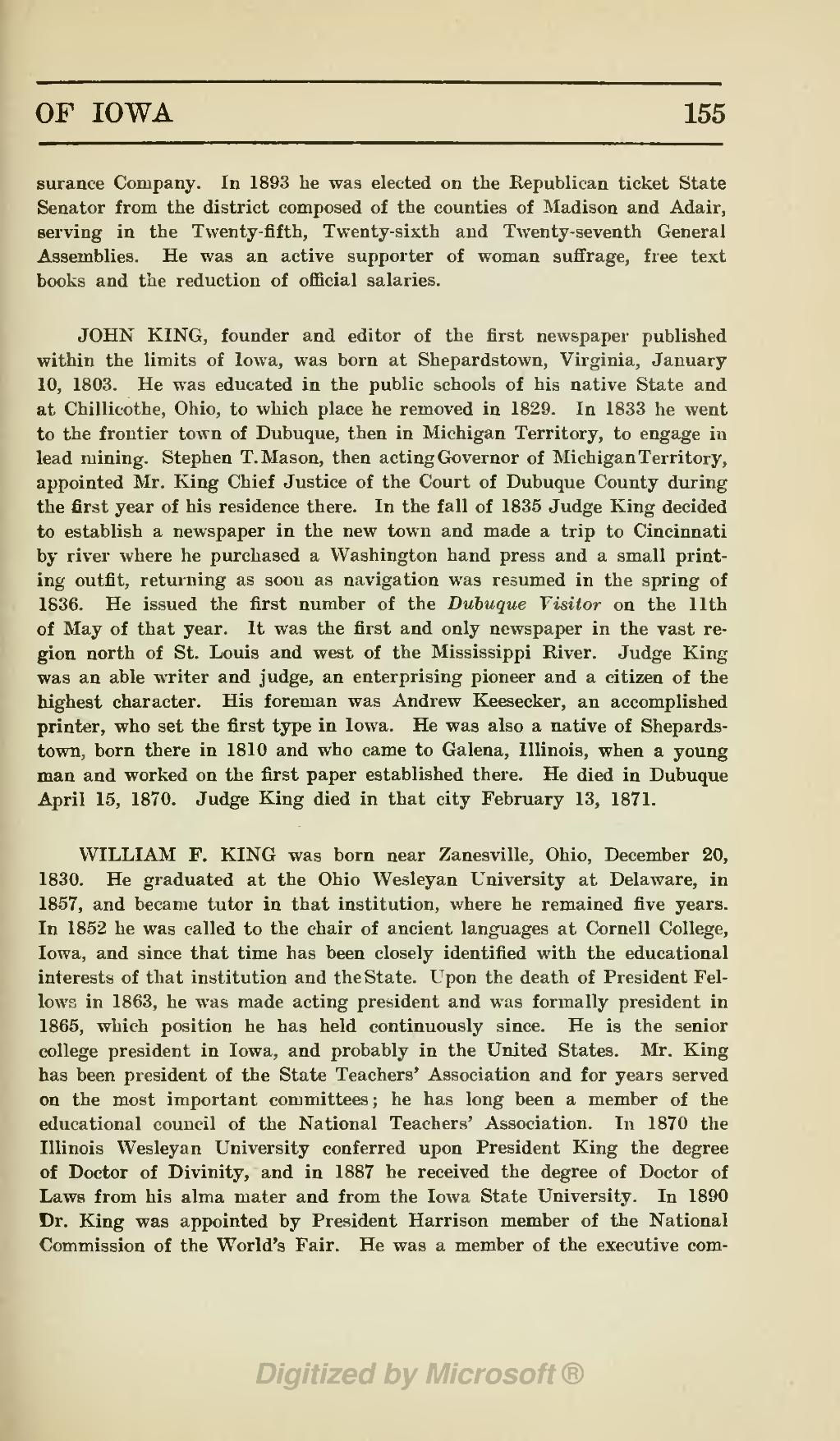surance Company. In 1893 he was elected on the Republican ticket State Senator from the district composed of the counties of Madison and Adair, serving in the Twenty-fifth, Twenty-sixth and Twenty-seventh General Assemblies. He was an active supporter of woman suffrage, free text books and the reduction of official salaries.
JOHN KING, founder and editor of the first newspaper published within the limits of Iowa, was born at Shepardstown, Virginia, January 10, 1803. He was educated in the public schools of his native State and at Chillicothe, Ohio, to which place he removed in 1829. In 1833 he went to the frontier town of Dubuque, then in Michigan Territory, to engage in lead mining. Stephen T. Mason, then acting Governor of Michigan Territory, appointed Mr. King Chief Justice of the Court of Dubuque County during the first year of his residence there. In the fall of 1835 Judge King decided to establish a newspaper in the new town and made a trip to Cincinnati by river where he purchased a Washington hand press and a small printing outfit, returning as soon as navigation was resumed in the spring of 1836. He issued the first number of the Dubuque Visitor on the 11th of May of that year. It was the first and only newspaper in the vast region north of St. Louis and west of the Mississippi River. Judge King was an able writer and judge, an enterprising pioneer and a citizen of the highest character. His foreman was Andrew Keesecker, an accomplished printer, who set the first type in Iowa. He was also a native of Shepardstown, born there in 1810 and who came to Galena, Illinois, when a young man and worked on the first paper established there. He died in Dubuque April 15, 1870. Judge King died in that city February 13, 1871.
WILLIAM F. KING was born near Zanesville, Ohio, December 20, 1830. He graduated at the Ohio Wesleyan University at Delaware, in 1857, and became tutor in that institution, where he remained five years. In 1852 he was called to the chair of ancient languages at Cornell College, Iowa, and since that time has been closely identified with the educational interests of that institution and the State. Upon the death of President Fellows in 1863, he was made acting president and was formally president in 1865, which position he has held continuously since. He is the senior college president in Iowa, and probably in the United States. Mr. King has been president of the State Teachers' Association and for years served on the most important committees; he has long been a member of the educational council of the National Teachers' Association. In 1870 the Illinois Wesleyan University conferred upon President King the degree of Doctor of Divinity, and in 1887 he received the degree of Doctor of Laws from his alma mater and from the Iowa State University. In 1890 Dr. King was appointed by President Harrison member of the National Commission of the World's Fair. He was a member of the executive com-
